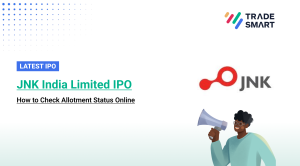
There comes a phase in every company’s journey where they need to raise capital. There are a couple of ways to go about it, like taking a loan, seeking venture capitalists, going public through IPOs etc.
For any private company that is not listed on the stock exchange, going public is the best option. The process is called IPO or Initial Public Offering. It entails a company raising capital from public investors in lieu of the company’s stocks.
How an IPO (Initial Public Offering) works
India has seen 21 unicorns emerge in the last year. There has been no shortage of raising funds for companies. Some have raised B-C-D rounds, while some have launched their IPOs. Thanks to this phenomenal spirit, almost everyone knows how IPO works in India.
While launching an IPO, a portion of the company’s equity is sold to the common public. The number of shares, price per share, and maximum allotment per user is pre-decided and based on wide analysis.
To launch an IPO, a company sells its stocks to one or more investment banks that act as underwriters for the IPO. The underwriters sell these stocks to the public.
Underwriters charge a fee for their service as they take a risk by buying stocks at a lower rate and making sure that it sells for a much higher price than they bought it. It is the biggest reason that IPOs are always favored to launch when the market is bullish.
In simple words, the bank does all the hard work for the company as to how much the company can raise, the price per share and the kind of securities that need to be issued.
How IPO works in India is that once both the parties have been agreed on mutual terms, the bank submits the registration statement on the company’s behalf with SEC or Securities and Exchange Commission. The registration statement contains all details about the company’s financials, history, present and future.
Post this, the SEC verifies all the details and post successful verification suggests an IPO launch date. The bank works on preparing a prospectus for the IPO launch.
Can you and should you buy IPOs?
Anybody who has a registered Demat account can invest in IPOs. But not everyone who can buy an IPO should invest in it. Here are a few pointers that one should consider before investing in IPOs.
-
Detailed and objective research
Every company wants to sell its share at a premium cost. That is how IPO pricing works. For an individual investor, it becomes tricky to decide whether to invest in this premium or not. It is here that a detailed study of the company comes in. Since they are planning to list, not much info will be easily available, but the more you research, the more informed your decisions will be.
-
Quality picks quality
A sign of a good IPO is that it will have underwriters. The top underwriters have a reputation for managing, and they usually pick promising companies that have a bright future (on paper, nobody can predict anything). It is to be considered only as advice and not as a hard and fast rule.
-
Deep understanding of how IPO allotment works
As an advisor or a wealth management company, it is very important to understand how IPO allotments work. Someone with an in-depth understanding of these topics will have the highest probability of getting the shares in an IPO.
The risk and benefits of an IPO
Often, the returns of an investment and the risk involved are directly proportional to each other.
Here are some of the pros and cons of an IPO.
Advantages
-
Huge capital gains
There are chances that an IPO will be able to get you 20-30% returns just as it gets listed on the exchanges. This leads to quick capital gains and who doesn’t like that!
-
Lower cost of getting more capital
Ruthless scrutiny in the form of audits is done by SEC and other agencies before clearing any company for an IPO. The audit is done according to the Public Company Accounting Oversight Board (PCAOB) standards, which are very stringent and serves as a stamp that the company is free from all kinds of risks whatsoever. This assures that the shares belong to an entity that is quality and justified the price you bought it for.
Risks
-
A bad listing
Well, as much as we love a good IPO, there can still be horrible ones that open much lower than the price expected. Such IPOs lead to losses and are not easy to get rid of.
Conclusion
IPOs have their own plus and minuses. As investors, we can always be more prudent while researching companies with their IPOs coming up. Usually, during the bull run, most IPOs list positive. However, during the bear season, even quality IPOs can list without much upside. Thus, it is always advised to fundamentally research a stock before you buy it. Would you like more expert and friendly guides on the concepts of online trading? Stay tuned and keep scrolling through the TradeSmart blog.











